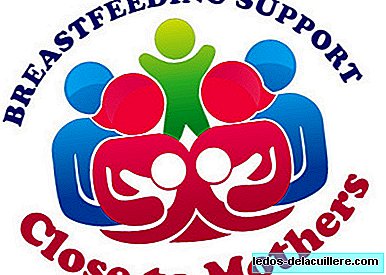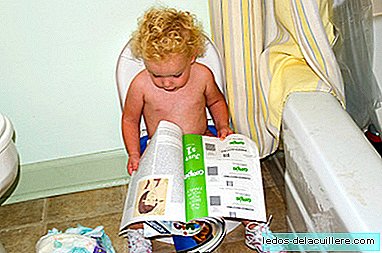
Yesterday, August 1 was the World Breastfeeding Day, which serves as the starting gun to the World Breastfeeding Week, which has been celebrated in more than 120 countries for more than 20 years.
It was in 1992 the first time it was held, at the request of WHO and UNICEF, and this year's motto is related to the support that breastfeeding mothers need: Support for breastfeeding mothers: close, continuous and timely!. Now, given the numbers of children who are breastfeeding all over the world, I don't know if there is much to celebrate.
Only 38% of babies drink breast milk
A few days ago, and as an introduction to the celebration of World Breastfeeding Week, WHO published the number of breastfed children in the world. Only 38% of the world's children are fed exclusive breast milk during the first six months of life, which personally seems to me a failure, if we take into account that they are world figures. If we were to talk about the first world, I could understand it, but when we include all those countries that, due to lack of resources or because they are clear that it is the logical diet that a baby needs, they should have very high rates, the figure seems very poor.
Twelve years ago that exclusive breastfeeding has been recommended for the first six months and, although it is true that in countries like Spain there are more and more mothers who follow this recommendation, we cannot ignore that 38% of the world's children is a very low figure.
A new report on the International Code of Breast Milk Substitutes
After offering us this information days before the celebration, during this week the WHO will publish a report on the implementation of the International Code of Breast-milk Substitutes, approved in 1981 and that was born with the intention of control the aggressive advertising techniques of these products, who managed to magnify artificial milk to a point where mothers and doctors came to believe that it was superior to human milk.
In the report they will explain, among other things, that only 37 countries out of a total of 199 have come to legislate the Code, which is again a worrying fact. Moreover, only a month ago we explained that Europe was going to ban images of babies in cans of artificial milk. Don't you feel like crying? Well. To me, yes.
Support for breastfeeding mothers: close, continuous and timely!
This year, and as they did in previous years, WHO and UNICEF have proposed that the central theme of the week be the support that breastfeeding mothers should receive. It is logical, it is normal and it is necessary. The figures say that 93% of mothers who stop breastfeeding would prefer not to have done so, and the causes are diverse: lack of family support, lack of support from professionals, either because of prejudice, or lack of knowledge, maternal casualties lower than necessary and probably a long etcetera.
Hopefully, with this motto and with this intention, health professionals and the environment of mothers who breastfeed begin to think more about babies and more about mothers, so that they do not feel alone and, above all, do not feel judged or belittled.
Breastfeeding is normal, it is what the baby's body needs to continue developing as it needs after birth. Let's not forget that they are born with a very deficient immune system and with a brain development of only 25%. Breastfeeding takes the placenta witness to continue outside with the work done inside, so, certainly, mothers and children need all the support so that all babies, or at least most, drink breast milk, and not just a Sad 38% of them.












